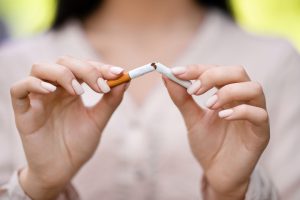 A pack year is used to measure how much a person has smoked over a long period. According to the National Cancer Institute, a pack year “is calculated by multiplying the number of packs of cigarettes smoked per day by the number of years the person has smoked. For example, 1 pack year is equal to smoking 1 pack per day for 1 year, or 2 packs per day for half a year, and so on.”
A pack year is used to measure how much a person has smoked over a long period. According to the National Cancer Institute, a pack year “is calculated by multiplying the number of packs of cigarettes smoked per day by the number of years the person has smoked. For example, 1 pack year is equal to smoking 1 pack per day for 1 year, or 2 packs per day for half a year, and so on.”
Along with a person’s age and smoking history, quantifying a pack year can help doctors determine whether someone should be screened for lung cancer. Lung cancer screenings are appropriate for adults who are longtime smokers and are at risk of developing the disease. The US Preventive Services Task Force (USPSTF) recommends yearly lung cancer screenings for individuals who:
- Are between 50 and 80 years old
- Have a 20-pack-year or more smoking history
- Currently smoke or have quit within the past 15 years
A low-dose computed tomography or low-dose CT is the only recommended screening test for lung cancer at this time. This machine works by scanning the body using low doses of radiation to produce detailed images of the lungs.
The USPSTF advises yearly screenings should stop when a patient:
- Has not smoked in 15 or more years
- Turns 81 years old
- Develops a health problem that makes them unwilling or unable to have surgery if lung cancer is found
Getting an annual screening for lung cancer can save lives by detecting the disease early when there is a greater chance it can be cured. While annual screenings are effective, they are not for everyone. Therefore, if you are at risk of developing lung cancer, speak with your doctor to learn if this is the best approach for you.
Jamaica Hospital Medical Center offers a lung cancer screening program to the community. For more information about our program, please call 718-206-5603 or email [email protected].
All content of this newsletter is intended for general information purposes only and is not intended or implied to be a substitute for professional medical advice, diagnosis or treatment. Please consult a medical professional before adopting any of the suggestions on this page. You must never disregard professional medical advice or delay seeking medical treatment based upon any content of this newsletter. PROMPTLY CONSULT YOUR PHYSICIAN OR CALL 911 IF YOU BELIEVE YOU HAVE A MEDICAL EMERGENCY.
